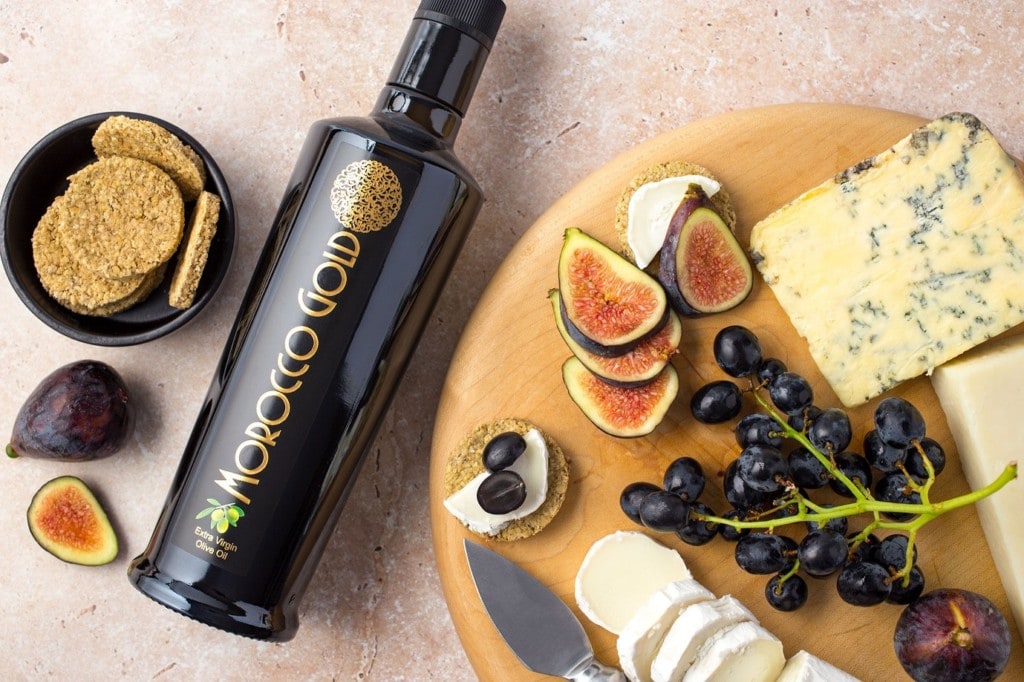Anti-Inflammatory Properties Of Olive Oil Can Help Prevent Ulcerative Colitis

Summary
- The anti-inflammatory properties of extra virgin olive oil and The Mediterranean Diet can help prevent Ulcerative Colitis
- Ulcerative Colitis is a type of inflammatory bowel disease (IBD) that causes chronic inflammation in the inner lining of the large intestine (your colon and rectum).
- Polyphenols serve as the core substances that give Extra Virgin Olive Oil its unique anti-inflammatory properties.
Contents
- Anti-Inflammatory Foods And The Mediterranean Diet Can Help Prevent Ulcerative Colitis
- What Is Ulcerative Colitis And Can Extra Virgin Olive Oil Help?
- The Importance Of A Healthy Gut Microbiome
- Anti-Inflammatory Properties Of The Mediterranean Diet
- Implementing the Mediterranean Diet for UC Prevention and Management
- Anti-Inflammatory Benefits of Extra Virgin Olive Oil
Following a Mediterranean Diet with plenty of anti-inflammatory foods like extra virgin olive oil can reduce symptoms that can lead to Ulcerative Colitis.
Anti-Inflammatory Foods And The Mediterranean Diet Can Help Prevent Ulcerative Colitis
According to a new report on Health.com, there are a number of dietary choices you can make that may help prevent intestinal inflammation and promote gut health.
These include:
- Following the Mediterranean diet: This diet is rich in fruits, vegetables, whole grains, and healthy fats.
- Following an anti-inflammatory diet: This diet focuses on consuming anti-inflammatory foods, including fruits and vegetables, and incorporating anti-inflammatory spices like ginger, turmeric, and paprika into foods. It also limits your intake of red meat, full-fat dairy products, and fried foods.
- Avoiding alcohol: Avoiding or limiting your intake of alcohol can help reduce or prevent inflammation.
What Is Ulcerative Colitis And Can Extra Virgin Olive Oil Help?

Ulcerative colitis (UC) affects millions worldwide, leading to an urgent need for dietary strategies that could complement medical treatments. Scientists have started to uncover how the Mediterranean diet might play a pivotal role in UC prevention and management.
Ulcerative colitis (UC) is a type of inflammatory bowel disease (IBD) that causes chronic inflammation in the inner lining of the large intestine (your colon and rectum). The inflammation can lead to symptoms like abdominal pain, diarrhea, and bloody stools.2 The cause of UC is not fully understood, but research suggests genetic and environmental factors contribute to its development.
The Importance Of A Healthy Gut Microbiome
The gut microbiome is a community of bacteria and other microorganisms in the intestines that play a critical role in digestion and immune function.19 An imbalance in this microbiome is associated with IBDs like ulcerative colitis. Eating a nutrient-dense diet and limiting your intake of processed and fried foods may help maintain a healthy gut microbiome and lower the risk of inflammation and UC.
Emerging research highlights the Mediterranean Diet’s impact on the gut microbiome, the vast community of microbes living in the digestive system. Foods prevalent in the Mediterranean diet, such as extra virgin olive oil, fibrous fruits and vegetables, encourage a healthy gut flora balance, enhancing gut health and potentially reducing UC flare-ups.
Anti-Inflammatory Properties Of The Mediterranean Diet
At the core of the Mediterranean diet’s benefits is its rich anti-inflammatory potential. Extra virgin olive oil, a staple of this diet, is high in monounsaturated fats and antioxidants – like polyphenols, which have been shown to reduce inflammatory markers associated with UC.
Implementing the Mediterranean Diet for UC Prevention and Management
Transitioning to a Mediterranean diet can be both enjoyable and health-promoting. For individuals seeking to reduce their risk of ulcerative colitis or manage their symptoms, here are practical tips to incorporate the diet’s principles:
- Olive Oil as a Staple: Replace saturated fats like butter with extra virgin olive oil in cooking and dressings. Its beneficial fats and antioxidants can aid in minimizing inflammation.
- Plant-Based Focus: Increase your intake of fruits, vegetables, whole grains, legaments, and nuts. These foods are not only rich in fiber, which supports digestion but are packed with anti-inflammatory nutrients.
- Moderate Fish and Poultry: While red meat is limited on the Mediterranean diet, fish and poultry can serve as excellent protein sources. Fatty fish, in particular, are high in omega-3 fatty acids, known for their anti-inflammatory properties.
- Limit Processed Foods: One of the key aspects of the Mediterranean diet is its emphasis on whole, minimally processed foods. Reducing intake of processed and refined foods can help lower the intake of additives and preservatives that may exacerbate UC symptoms.
Anti-Inflammatory Benefits of Extra Virgin Olive Oil
Phenols and polyphenols serve as the core substances that give Extra Virgin Olive Oil its unique anti-inflammatory properties. Researchers have determined that small amounts of Extra Virgin Olive Oil, as low as one tablespoon per day, can lower inflammatory signalling in our body, including levels of interleukin-6 (IL-6) and tumour necrosis factor alpha (TNF-alpha).
Interestingly, in Mediterranean-type diets that include daily intake of Extra Virgin Olive Oil, not only is there less production of signalling molecules like TNF-alpha, but there is also less activity by the cell receptors for these pro-inflammatory molecules. (This decreased receptor activity has been shown for tumour necrosis factor receptor 60 (TNFR 60) and tumour necrosis factor receptor 80 (TNFR 80). Levels of C-reactive protein (CRP) have also been show to decrease with daily intake of Extra Virgin Olive Oil.
In addition, scientists have shown that individuals who regularly consume Olive Oil have reduced activity of their pro-inflammatory cyclo-oxygenase 1 (COX-1) and cyclo-oxygenase 2 (COX-2) enzymes, as well as reduced levels of related molecules including thromboxane B2 and leukotriene B4. Two molecules that are known to increase during inflammatory disease processes, vascular cell adhesion molecule-1 (VCAM-1) and intercellular adhesion molecule 1 (ICAM-1), have also been shown to decrease in amount following intake of Extra Virgin Olive Oil.
Conclusion
The intersection of diet and disease prevention continues to be a growing area of research, offering hope for non-pharmacological strategies in managing diseases like ulcerative colitis. The Mediterranean diet, with its focus on nutrient-dense and anti-inflammatory foods, particularly extra virgin olive oil, presents a compelling, evidence-backed approach to reducing the risk and severity of UC.
While dietary changes should not replace medical treatment, they can serve as a powerful adjunct therapy. Always consult with a healthcare professional before making significant changes to your diet, especially if you have ulcerative colitis or other chronic conditions.
